SUMMARY
This is AI generated summarization, which may have errors. For context, always refer to the full article.
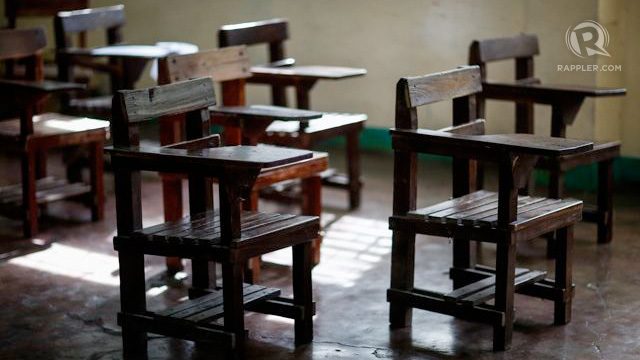
MANILA, Philippines – What awaits Philippine education in 2016 and beyond?
The Philippines’ competitiveness in terms of health and primary education has climbed 4 notches in the past 6 years, according to the World Economic Forum’s Global Competitiveness Report.
Likewise, ranking in terms of higher education and training improved by 10 notches.
|
PH global competitiveness ranking out of 139 countries Source: World Economic Forum |
||
| Pillars | 2010-2011 | 2015-2016 |
| Health and Primary Education | 90th | 86th |
| Higher education and Training | 73rd | 63rd |
The Philippines, however, is still far behind its Southeast Asian neighbors.
In health and primary education, Singapore placed 2nd worldwide, followed by Malaysia (24th), Vietnam (61st), Thailand (67th), and Indonesia (80th).
Dropout rates, although already decreasing in the past decade, remain a problem.
|
PH Dropout rate Source: DepEd |
||
| 2005-2006 | 2014-2015 | |
| Elementary | 7.33% | 2.93% |
| Secondary | 7.99% | 6.11% |
On the bright side, the average spending per public school student rose from P8,862 in 2009 to P17,282 ($365) in 2015, the Department of Education reported.
This amount, however, is small compared to other countries.
On average, OECD (Organization for Economic Cooperation and Development) countries spend $8,296 (P392,280) per primary student as of 2011. In 2009, Thailand’s average was $853 (P38,372), according to the World Bank. Meanwhile, Japan’s was $5,000 (P224,925).
Aside from budget concerns, one of the most talked about issues in the education sector is the K to 12 program, which adds two years to basic education.
The Philippines is the only country in Asia, and one of only 3 countries worldwide, with a 10-year pre-university cycle.
Its full implementation is eyed by 2017.
As election nears, let’s look at what presidential bets have to say about education and the K to 12 program:
Jejomar Binay
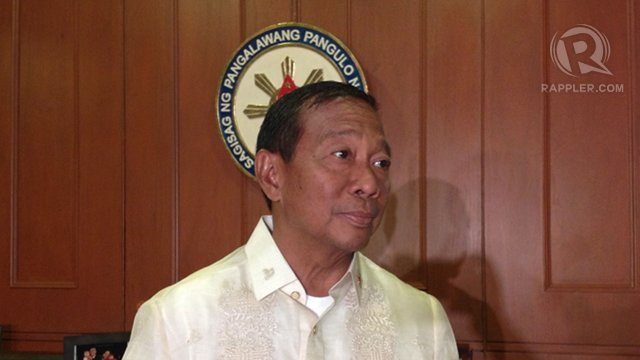
In 2015, Vice President Jejomar Binay said he would improve the K to 12 program if elected president.
“When I become president, one of the first things we will do is to review the implementation of the K-12. I agree with the noble purpose behind K-12, but I feel that stakeholders are ill-prepared for such major adjustments in their schedules and resources,” he said during a keynote speech in a Southern Leyte school.
Binay suggested adding an apprenticeship program.
“Under this system, the school partners with private companies. Trainees work as apprentices in these companies and are given living allowances, therefore earning while learning,” Binay explained.
He added that private sector enterprises and higher education institutions can work together in developing a college curriculum “that is more attuned to the requirements of the labor market.”
The University of Makati, he said, could be replicated nationwide.
Binay’s priorities include:
- Free basic education for public school children
- National nutrition and feeding program for children ages 1 to 6
- More special education schools
- Address backlogs in classrooms, teachers, and textbooks
- Bring schools closer to children
- National educational council under the office of the president
- Increase education and training budget by 20%
- Expansion of student loans and grants program under the Government Assistance to Students and Teachers in Private Education law
- A “Teacher 1” position shall receive Salary Grade 19 (P33,859) instead of Salary Grade 11 (P18,549)
Binay also promised more benefits for teachers like housing, study grants for them and their children, instructional materials allowance, 20% discount on food, transportation, medical and dental services.
He even suggested giving teachers discounts on burial services.
“[W]e will ask Congress, which alone is authorized to appropriate funds, to pass the necessary laws to secure the budgetary requirements,” Binay said.
Rodrigo Duterte
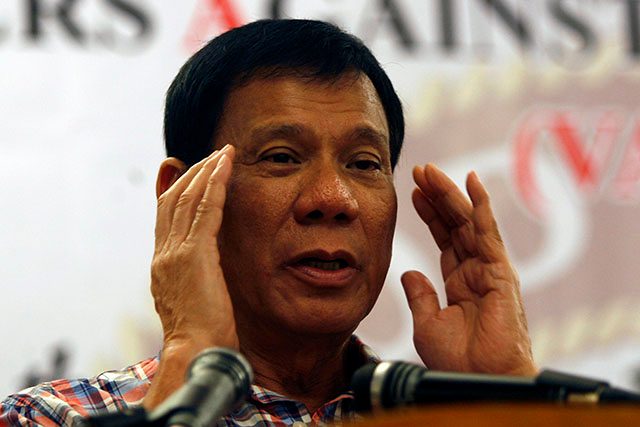
Education is Davao City mayor Rodrigo Duterte’s second top budget priority, after agriculture and before health.
Duterte also wants scholarships for children of military members who die on duty.
The mayor, however, is not so impressed with the K to 12 program.
In a 2015 interview with SunStar, Duterte called the additional senior high school program “questionable, urging for it to be only “optional.”
“It is not yet too late to stop it, and wait for the right time, more money, and more teachers at hand ready to embark on the K to 12,” he told SunStar.
In Business Mirror, he also called the program’s implementation “ill-advised.”
In March, however, Duterte told Rappler that he is already in favor of K to 12. “Upon review, I think it’s good for the country. We really lack years in education,” he said.
As for the curriculum, Duterte told the Philippine Star that algebra, calculus, and trigonometry should be replaced with business mathematics in school.
Grace Poe
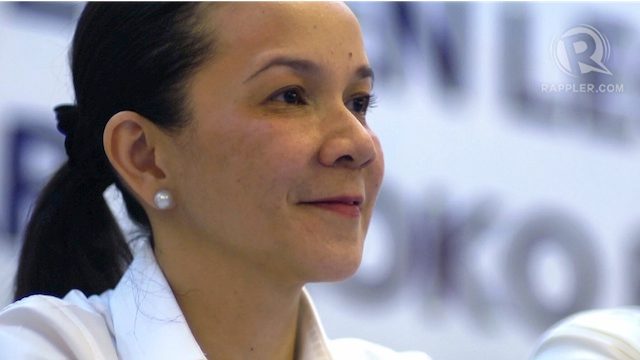
Senator Grace Poe supports the Aquino administration’s K to 12 program, believing it will equip students with the necessary skills to work and provide for their families.
Poe wants K to 12 graduates to be allowed into the Philippine National Police.
The neophyte senator also actively supports children’s nutrition. She filed a bill to provide free lunch programs to public elementary school students.
During Poe’s presidential bid declaration, education topped her priorities. She mentioned the following:
- Maximize digital technology for education
- Eliminate backlogs
- Expand scholarship programs
- Strengthen the “Study now, pay later” program
- Help college students find internships and jobs before they graduate
Mar Roxas
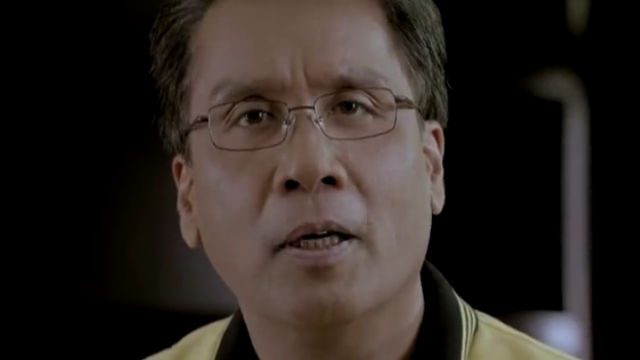
In a previous conversation with Rappler, Mar Roxas said that he wishes all Filipinos would get a good education and decent job opportunities.
“[B]y doing K-12, we are able to equalize that and continue to provide opportunity for our people and for our workers and so these are the kinds of things that have been done for the last 5 years of President PNoy into his 6th year and which we want to continue under Daang Matuwid,” he told Rappler.
By “aligning our education system with the rest of the world,” discrimination against overseas Filipino workers may also cease, Roxas said.
Even before the enactment of the K to 12 law in 2013, Roxas already had a clear vision for Philippine education.
In 2008, Roxas filed the Omnibus Education Reform Act, which aims for a “globally competitive” education system. Among his proposals were:
- Using a child’s mother tongue as medium of instruction in schools
- A school feeding program
- A 12-year basic education program
- Providing electives for high school students
- Compulsory preschool program
- Better training for teachers
Miriam Defensor Santiago
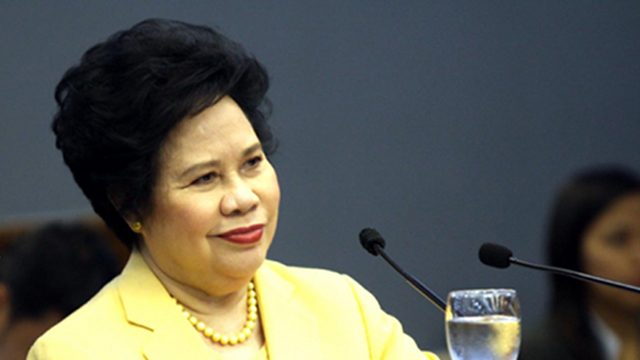
Senator Miriam Defensor Santiago pushes for better quality of formal, non-formal, and special education.
As for K to 12, the senator said the program’s aim is to build the “lifelong advantage” of Grade 12 graduates, rather than just their employability in fields like agriculture, electronics, and trade.
“If K to 12 has begun lessons on sustainable development, then technical and vocational education must usher in the ’21st century green economy,’ with earth-friendly ‘green’ jobs,” Santiago said.
Even while on medical leave, Santiago called on the Senate to look into the tuition hike among private colleges and universities, and the probe on DepEd textbooks which are not K to 12-aligned.
Her other priorities include:
- Promotion of safety in schools
- Advancement of science and technology education
- Stronger recruitment process of Filipino teachers
- Free information and communications technology college education for poor deserving students
Can the presidential bets deliver on their promises? – Rappler.com
Add a comment
How does this make you feel?
There are no comments yet. Add your comment to start the conversation.